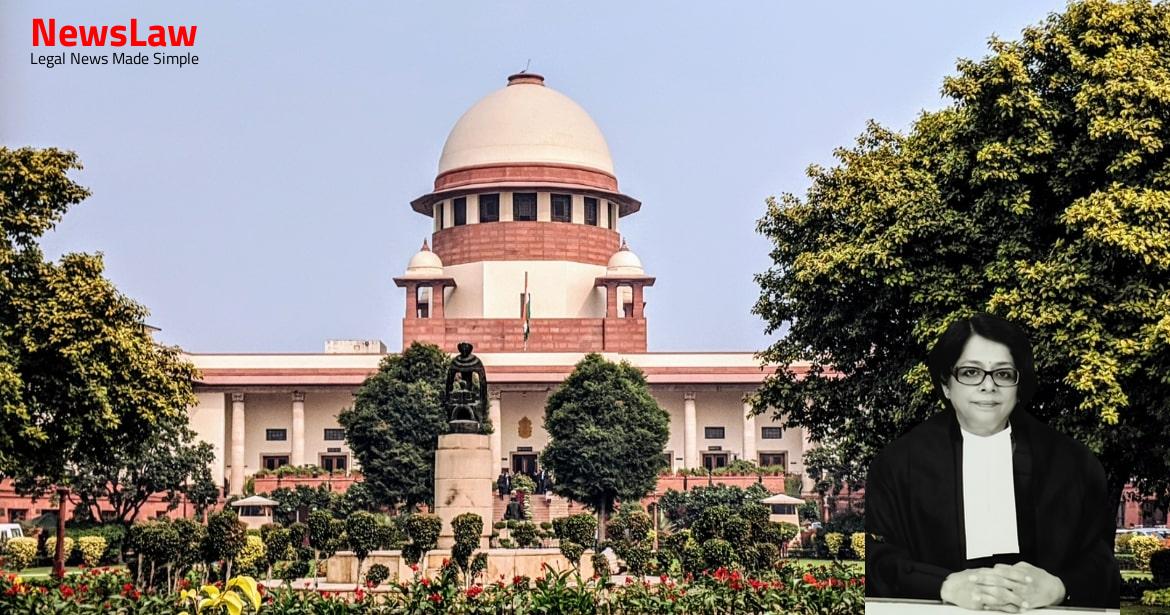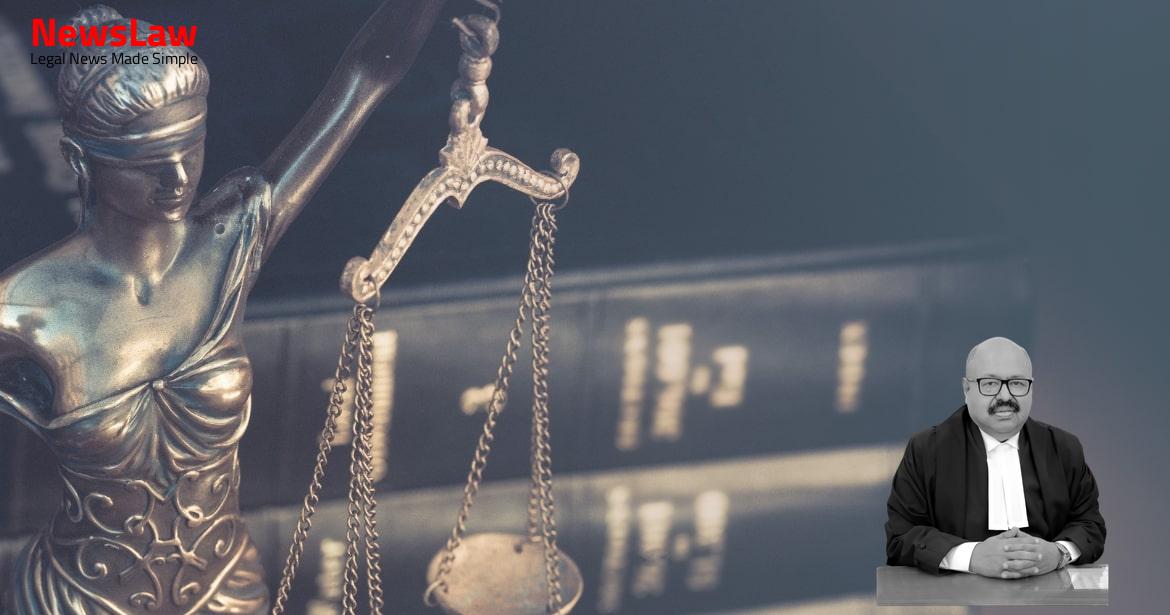As per Rule 5 of the Assistant Conservator of Forests in the Maharashtra Forest Service, Group A (Junior Scale) (Recruitment) Rules, 1998 (hereinafter referred to as the “1998 Rules”), appointment to the post of ACF shall be in the ratio of 50:50 from these two sources. However, instead of issuing appointment orders appointing the appellants on probation, respondent no.1 issued a letter dated 19.06.2013 informing the appellants that they will be sent to pre- appointment training. It was observed that the recruitment rules for the post of ACF in the Maharashtra Forests Service Class II (hereinafter referred to as “the 1965 Rules”), which were accompaniment to the Government Resolution dated 17.02.1965, inter alia provided that a candidate was eligible for the post of ACF after completing the prescribed course of training. It was held that the appellants will be entitled to regular pay after successful completion of probation, retrospectively from the date of appointment, after deducting the amounts of ‘stipend’ already paid to them. Their grievance was that though they were promoted as ACF before the appellants herein, they were shown junior to the appellants in the seniority list of ACF. The said Rules are reproduced hereinbelow:
Also Read: https://newslaw.in/supreme-court/selection-and-appointment-of-judicial-officers-in-himachal-pradesh/
Rule 6 of the 1998 Rules “A person appointed to the post by nomination shall be on probation for a period of three years including two years of Assistant Conservator of Forests training course and 1 year field training as decided by Principal Chief Conservator of Forests, Maharashtra state, Nagpur” (sic.)
….
The significant aspect is the Proviso to Rule 2 of the 1984 Rules, which specifically stipulated that the period spent on training at the Government Forest College by directly appointed ACF shall not be counted towards the requisite period of service for purposes of appointment to the cadre of DFO. The High Court passed an interim order dated 18.04.2019 restraining the respondent authorities from issuing any promotion order based on the judgment of the Tribunal dated 03.02.2016. was on a factual scenario where, in the absence of rules regarding fixation of seniority of persons appointed to ACF, a Government Resolution was issued suggesting determination of seniority of directly recruited ACF in Gujarat State Forest Services Class II by taking into account the period of training.
The reasoning of the High Court was based on the 1984 Rules which were framed under the Proviso to Article 309 of the Constitution and have statutory force. The High Court thus held that the seniority of persons selected for the post of ACF by nomination shall be counted from the date of issuance of appointment order after successful completion of training qua the person appointed to ACF by promotion. In terms of Rules 3 and 6 of the 1998 Rules, the period of training is now considered as period of probation and Rule 6 opens with the expression “a person appointed to the post by nomination”, which is described under Rule 3(b).
It is submitted that an incongruous situation has arisen in view of the impugned judgment, where for the purposes of salary, the appellants will be considered to be appointed as from date of commencement of their training on 01.12.2014, but for selection, the date of appointment is to be considered after appointment order issued on successful completion of training. The judgment in Prafulla Kumar Swain case was sought to be distinguished on facts as Regulation 12(c) of the Orissa Forest Services Class II Recruitment Rules, 1959 in the said judgment contemplated that such service will count only from the date of appointment to the service after successful completion of the course of training.
The respondents further submitted that the endeavour of the appellants to rely on Government Resolutions dated 25.01.1990, 29.07.1993 and 17.02.1997 and claim that Rule 2 of the 1984 Rules had no relevance is fallacious as, Government Resolutions cannot override the Rules.
If we turn to the statutory Rules framed under Article 309 of the Constitution, i.e., the 1984 Rules, Rule 2 refers to the appointment to the post of the DFO and the same to be made by promotion from amongst officers of the Maharashtra Forest Service and also by appointment directly. (Hence, even if the Government Resolution dated 25.01.1990 upgraded the post of ACF from Class II to Class I, the Proviso to Rule 2 of the 1984 Rules will continue to hold valid in determining the period of service.) In the aforesaid context if we turn to the 1998 Rules, more specifically Rule 3(b), the stipulation is that in case of a nomination, the same is based on the result of the competitive examination held by the Commission in accordance with the Rules and the candidate is required to have “successfully completed the training course.” Rule 6 provides for probation for a period of three years including two years of ACF training course and one year field training, as decided by the Principal Chief Conservator of Forests.
We do believe that on behalf of the appellants there is over- emphasis on the expression “person appointed to the post by nomination” under Rule 6 of the 1998 Rules, without appreciating the context in which such expression has been used. This cannot amount to giving seniority from the date of initial recruitment process to determine inter se seniority, when the Proviso to Rule 2 of the 1984 Rules makes the date of appointment for direct recruits clear. On having come to the conclusion that the Government resolutions cannot override statutory rules, and the resolutions neither speaking about promotion to the post of DFO nor about seniority conclusively, the Proviso would operate with full force. [Sanjay Kishan Kaul]…………………………………….
J.
Case Title: ASHOK RAM PARHAD Vs. THE STATE OF MAHARASHTRA (2023 INSC 233)
Case Number: C.A. No.-000822-000822 / 2023



